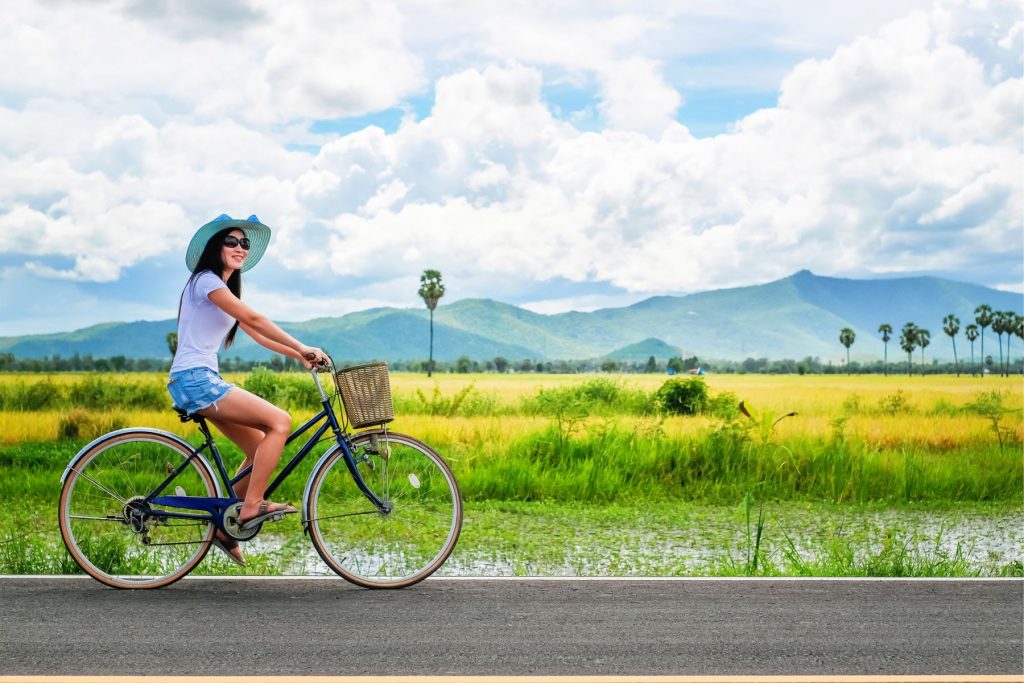Introduction
In our fast-paced world, where the pressures of work, family, and personal responsibilities often weigh heavily on us, it’s easy to feel drained, uninspired, or disconnected. Whether you’re feeling stuck in a routine or facing a mental block, sometimes the best way to hit the reset button is by taking a break—specifically, through travel.
But can travel truly be the best way to reset your body and mind? And how does stepping away from the familiar allow us to reconnect with ourselves and find new inspiration? In this article, we’ll explore the mental, emotional, and creative benefits of travel, and why taking time to explore new places could be the ultimate remedy for burnout, stress, and creative stagnation.
1. The Mental and Emotional Benefits of Travel
a. A Break from Routine and Stress
One of the primary reasons travel is so effective at rejuvenating the mind is that it offers an escape from daily routines. When we’re caught up in the grind of everyday life—commuting, working, maintaining responsibilities—we often find ourselves stuck in a repetitive cycle. This constant routine can lead to mental exhaustion, burnout, and even feelings of isolation.
- How it helps: Travel allows you to break free from the mundane, offering a mental reset. Whether you’re venturing to a quiet beach or exploring a bustling city, the change of scenery and pace can reduce stress, promote relaxation, and restore a sense of balance.
- Example: A weekend getaway to a serene mountain retreat might allow you to disconnect from work emails and technology, giving you time to reflect, meditate, or simply rest. The change in environment automatically shifts your focus, giving your brain the space it needs to recover.
b. Reducing Anxiety and Recharging Mental Health
Travel provides the opportunity to step outside of our normal routines and away from the sources of daily anxiety. In doing so, it offers the mind a chance to rest and recover from the constant demands of modern life. This mental break can be incredibly restorative for people dealing with stress, anxiety, or burnout.
- How it helps: Immersing yourself in a different environment, away from the pressures of work or personal obligations, can provide a sense of relief. Nature, in particular, has been shown to lower cortisol levels (the stress hormone) and improve overall well-being.
- Example: A trip to a peaceful countryside can promote mental clarity. Spending time in natural surroundings allows your mind to recalibrate, reduce stress, and return to a state of emotional equilibrium.
c. Building Emotional Resilience
Travel also fosters emotional growth. While the experience of traveling is exciting, it can also be challenging—especially when you’re far from home and encountering unfamiliar places, cultures, and people. These challenges can teach resilience, adaptability, and patience.
- How it helps: Facing the unknown—whether it’s navigating a new city, adapting to a different culture, or solving unexpected problems—helps you become more resilient emotionally. These experiences build confidence and give you the ability to cope with uncertainty.
- Example: If you’re traveling in a foreign country and encounter a language barrier, you might feel frustrated at first, but learning to adapt and find solutions (such as using translation apps or gestures) boosts your emotional resilience.
2. Travel as a Source of Inspiration
a. New Perspectives and Ideas
One of the most powerful ways travel impacts our minds is by exposing us to new perspectives. When we travel, we’re often faced with different cultures, ideas, and ways of living. This can be an eye-opening experience that challenges our preconceived notions and broadens our thinking.
- How it helps: The exposure to new ideas and different ways of life sparks creativity. Inspiration often comes when we step out of our comfort zones and experience things that are foreign to us.
- Example: Visiting an art museum in a different city might expose you to new art movements or techniques that inspire your own creativity. Even a simple walk through a local market can provide fresh ideas for your own work or personal projects.
b. Connecting with Different Cultures
Travel gives us the opportunity to engage with people from diverse backgrounds, each with their own stories, beliefs, and traditions. These encounters not only expand our worldview but also provide fresh ideas and perspectives that we can carry back with us.
- How it helps: Engaging with local cultures fosters empathy, understanding, and creativity. Seeing how others live can spark new insights about your own life and creative endeavors.
- Example: A trip to a country known for its rich traditions in food and cooking, like Italy or Japan, might inspire you to experiment with new recipes or develop a deeper appreciation for the culinary arts. Similarly, interacting with local artisans can motivate you to pick up a craft you hadn’t considered before.
c. Time to Reflect and Reconnect with Yourself
When you travel, you’re often given the rare opportunity to step away from your usual distractions and take time to reflect on your own life. This distance from the familiar can help you reconnect with your values, passions, and goals, allowing you to gain new clarity and insight into what truly matters to you.
- How it helps: Being in a new environment provides mental space for reflection, free from the everyday noise of life. This can lead to powerful moments of self-discovery and reinvigorated purpose.
- Example: During a solo backpacking trip, you might have moments of quiet reflection while hiking in the wilderness. These peaceful moments give you space to think deeply about your life, your career, and your personal aspirations, helping you return home with a clearer sense of direction.
3. Travel and Creativity: How New Experiences Spark Innovation
Travel not only resets your body and mind but also fuels your creativity. The act of experiencing new places, sounds, smells, and landscapes directly impacts your brain, stimulating it in ways that everyday life doesn’t. This can lead to breakthroughs in creative thinking.
a. Immersing in New Environments Enhances Creative Problem-Solving
Travel challenges your brain to think in new ways. Whether you’re navigating a different city, learning a new language, or simply adapting to a new time zone, these new experiences force you to use your brain in different ways, which can lead to creative breakthroughs.
- How it helps: The novel stimulation provided by travel can spark new ideas, solutions, and insights that you may not have encountered if you remained in your usual environment.
- Example: Writers, artists, and musicians often find that travel provides a wealth of new material and inspiration. A writer visiting a new city might be inspired to write about the people, places, and stories they encounter, while an artist might find new textures, colors, and landscapes that influence their next work.
b. Breakthroughs Come from Stepping Away from Work
Sometimes, stepping away from the constant pressure of deadlines, projects, and responsibilities allows your brain to relax and make creative connections it couldn’t make while stressed.
- How it helps: The freedom and flexibility of travel provide the mental space necessary for creative ideas to form. When you’re not constantly focused on achieving goals, your brain has more room for innovative thinking and problem-solving.
- Example: Many entrepreneurs and innovators report having their best ideas while traveling, whether on a long plane ride, during a hike, or while relaxing by the beach. The change in pace and environment fosters creativity and innovation.

4. How to Maximize the Benefits of Travel for Recharging and Inspiration
To truly make the most of your travel experiences, here are some tips to ensure you use your time away effectively for relaxation and inspiration:
a. Be Present and Mindful
While it’s easy to fall into the trap of snapping photos and checking social media constantly, being mindful of the present moment during your travels helps you absorb the full experience. Pay attention to the sounds, sights, and people around you, and allow yourself to be fully immersed in your environment.
- How it helps: Being present fosters mindfulness, which enhances your ability to reflect, relax, and gain inspiration from the world around you.
b. Step Outside Your Comfort Zone
Travel often provides opportunities to push your boundaries and try new things. Whether it’s trying a new activity like surfing, hiking in a remote area, or learning to cook a local dish, stepping outside your comfort zone can ignite new passions and lead to personal growth.
- How it helps: New challenges promote self-confidence, emotional resilience, and creativity. These experiences not only enrich your travel but also leave you feeling more fulfilled and inspired.
c. Make Time for Reflection
Amidst the excitement of traveling, make sure to carve out time for self-reflection. This could be in the form of journaling, meditating, or simply sitting quietly and observing your surroundings.
- How it helps: Reflecting on your experiences during your travels can help you gain new perspectives on your life and find inspiration that extends beyond your trip.
Conclusion
Travel offers far more than just an escape—it’s a powerful tool for mental, emotional, and creative rejuvenation. By stepping away from your daily routine and immersing yourself in new environments, cultures, and experiences, you can reset your mind, reduce stress, and spark new ideas. Whether you’re seeking relaxation, self-discovery, or inspiration, travel is one of the best ways to reconnect with yourself and the world around you.
So, the next time you feel burnt out or creatively blocked, consider taking a trip. A change of scenery might be just what you need to revitalize your body, refresh your mind, and ignite your passion.

















































